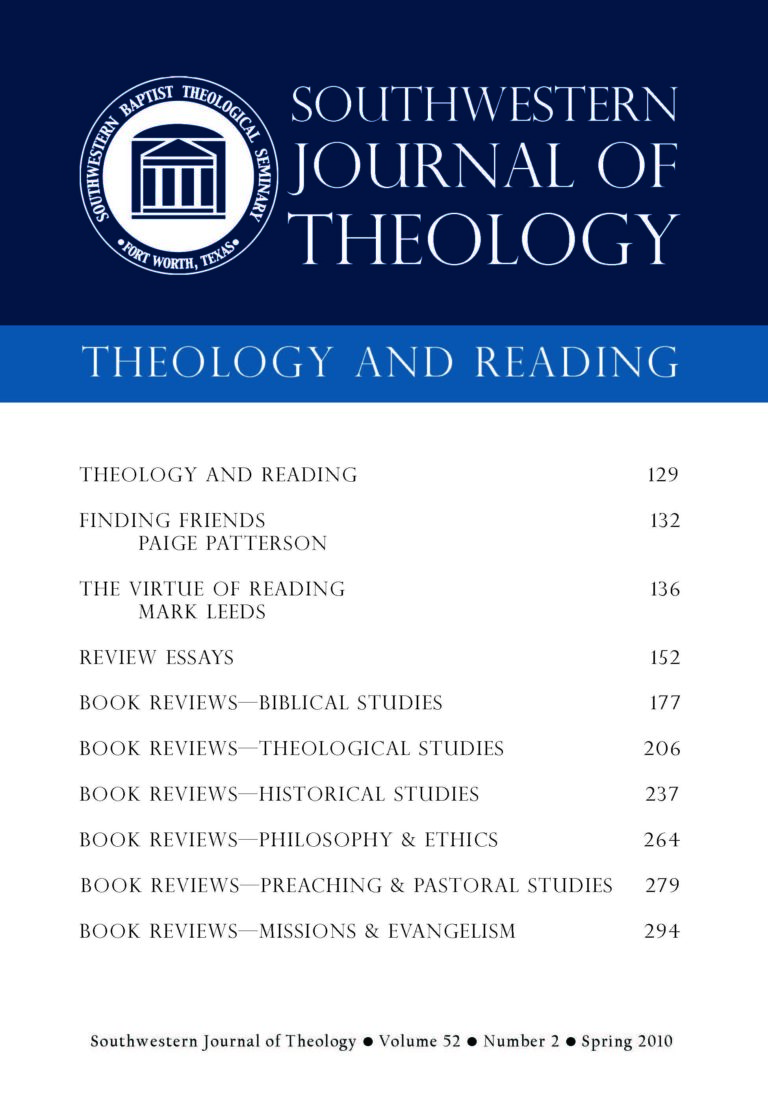
Theology and Reading
Southwestern Journal of Theology
Volume 52, No. 2 – Spring 2010
Managing Editor: Malcolm B. Yarnell III
By Bruce K. Waltke. Grand Rapids: Eerdmans, 2007. 480 pages. Hardcover, $32.00.
With meticulous precision, Bruce Waltke has produced an excellent resource for advanced students on the text of Micah. The outline and format of the commentary is as straightforward as the title. The three chapters are based on the three cycles of oracles delivered by the prophet. Each chapter is subdivided along the specific oracles. The format guiding the discussion of each oracle is simply exegesis and exposition. The exegesis section analyzes the textual issues of the pericope; in the exposition, Walke outlines and explains the text. He clearly shows how the oracles are demarcated and also how adjacent oracles are linked.
Waltke advocates a traditional and conservative view of the authorship and date of the book. Throughout the discussions, he examines how the specific historical context within which Micah wrote impacted his message. Moreover, he explains how particular passages find ultimate fulfillment in the New Testament through the person and work of Christ.
There are a few weaknesses to the work, one of which is allowed by the author. In the preface, Waltke explains that the commentary was originally produced for another publisher in the 1980s and that this present work is merely an expanded version. As such, he admits that the research is dated, a fact that is reflected in the selected bibliography, which includes nothing since 2001.
Some other weaknesses of the work include the following: 1) only a limited amount of application is demonstrated throughout the work and usually only briefly appended at the end of a section; 2) his advocacy of the multiple authorship of Isaiah seems to be a cop-out on the question, accepting without discussion what he describes as the “scholarly consensus” (215); 3) at one point in the text, Waltke relies almost entirely on the work of a single author (Renaud) throughout an extended section; 4) the author cites his own work on syntax an inordinate number of times in the exegesis sections; and 5) the work contains no conclusion. Instead, the commentary simply stops somewhat abruptly at the end of the discussion of Micah 7.
However, the strengths of the work overshadow any weaknesses. Throughout, the work is characterized by a depth of research and careful analysis of the text. Waltke demonstrates an impressive command of the biblical languages. He employs a detailed analysis of the Hebrew text, including parsing, and provides clear justification where he advocates alternative translations. He addresses complex syntactical issues with clarity and deftly handles the difficult textual questions. In addition, Waltke’s rules for interpreting complex passages and those for interpreting oracles concerning Israel’s future would be worth the cost of the book for aspiring students.
The greatest asset of this commentary is his handling of several key passages in Micah. Waltke offers a side-by-side comparison of the synoptic passages of Micah 4:1–3 and Isaiah 2:2–4. He also includes a thorough and compelling discussion of Micah 6:1–8. Overall, the outline is easy to follow, interesting to read, thoroughly documented, and well-written. It is an asset to any serious Bible student’s library. I enthusiastically recommend it.





